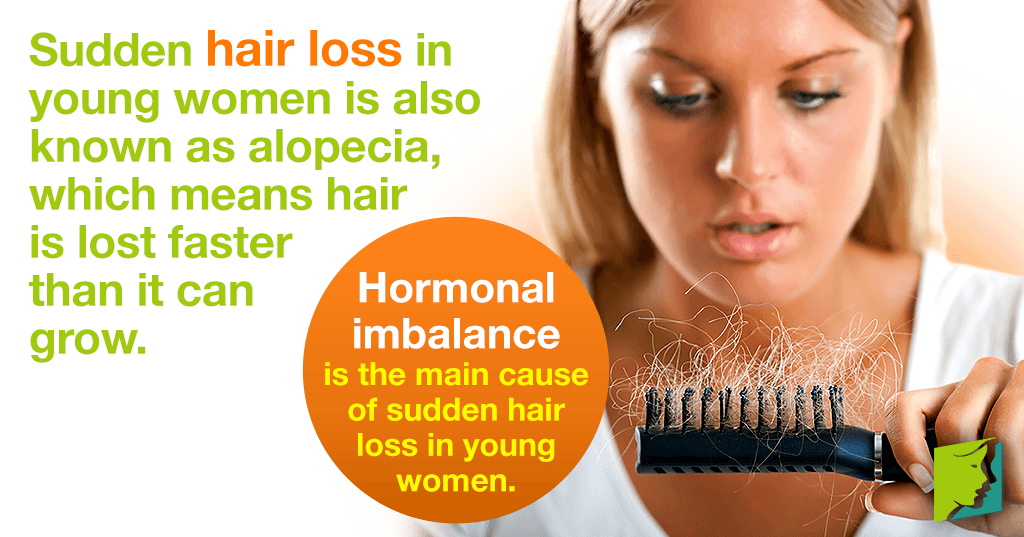Although the experience of sudden hair loss or thinning among young women is not uncommon, the phenomenon can still be highly distressing. As sudden hair loss can seriously affect a woman's self-esteem, it is important that the condition is addressed appropriately.
Understanding Sudden Hair Loss in Young Women
Sudden hair loss is scientifically known as alopecia and refers to the condition where a person loses hair at a faster rate than normal. Typically, each hair follicle grows approximately ¼ of an inch per month, and continues growing for a maximum of six years. After this period, the hair falls out and is replaced by new growth. Under normal circumstances, an adult sheds 50 - 100 hairs a day. Alopecia occurs when this cycle is disrupted and the rate of hair loss exceeds that of re-growth.
Generally, hair loss or thinning is most commonly associated with men. Nonetheless, nearly all young women will experience some degree of hair loss during their lives, and two-thirds of them will be severely affected. However, unlike in cases of male hair loss, sudden hair loss in young women does not often cause total baldness. In fact, most women who suffer from hair thinning will never experience complete hair loss.
What Causes Sudden Hair Loss in Young Women?
The causes of sudden hair loss in young women are variable and influenced by a complicated set of factors. These factors however, can generally be divided into psychological and physiological categories.
Psychological Causes
Anxiety, emotional stress, and fatigue are common culprits of sudden hair loss in young women. If these factors remain uncontrolled, they can lead to emotional distress and cause imbalances in the body that result in hair loss. However, some cases of hair loss are triggered by psychological factors are temporary and pass once emotional stability has been restored.
Physiological Causes
Hormonal imbalance is the primary cause for sudden hair loss among young women. Testosterone is the principal hormone that signals hair growth in the body, and dihydrotestosterone (DHT), a hormone derived from testosterone, is responsible for overproducing hair. However, even though DHT is produced from testosterone, it is controlled by estrogen. Therefore, when women maintain a stable equilibrium of estrogen and testosterone, hormones stay balanced and DHT is controlled. However, when a woman suffers from hormonal imbalance, estrogen levels fluctuate and leave DHT production uncontrolled. This oscillation often causes sudden hair loss among young women.
Managing Hair Loss
Due to hair loss's relationship with estrogen, the best methods for managing the hormonal causes of hair loss involve balancing hormone production. In addition, natural herbal supplements are very effective for relieving hormonal imbalance, which is the primary cause of hair loss in women. Click on the following link to read more about the options available for treating hair loss.
Sources
- Harvard Health. (2009). Treating female pattern hair loss. Retrieved August 17, 2015, from http://www.health.harvard.edu/staying-healthy/treating-female-pattern-hair-loss
- Mayo Clinic. (n.d.). Hair loss. Retrieved August 17, 2015, from http://www.mayoclinic.org/diseases-conditions/hair-loss/basics/definition/con-20027666
- National Health Service UK. (2013). Women and hair loss: coping tips. Retrieved August 17, 2015, from http://www.nhs.uk/Livewell/hairloss/Pages/Womenandhairloss.aspx




